
WATCHING THE PROS zoom down Alpine peaks is a thrilling sporting spectacle full of power, pace and precision. But descending is a skill that requires technique, cool confidence and regular practice. The ability to descend safely and quickly can deliver huge time gains in races, improve your bike-handling skills and enhance your safety in the hills. But, with most UK riders training on relatively flat roads and the joy of tackling long 20km descents often restricted to holidays abroad, it's a skill that's easy to neglect. Here's how to get started....
01Look up
Descending will feel easier if you look further down the road. It'll help you spot any hazards and give you more time to prepare for the bends ahead. "A lot of people just look straight in front of them, but if you can look through the corner to the next point it'll give you a smoother racing line," says Ineos Grenadiers rider Ben Swift. The faster you go, the further you need to look ahead in order to anticipate any changes in the surface or direction of the road. It's normally best to go onto the drops when you're descending: it lowers your centre of gravity to provide extra balance and improves your aerodynamics so you can enjoy free speed. "It feels safer because you have your thumb and forefinger pushing against the bars," adds coach David Lines. But be prepared to adapt your position to the course.
"On treacherous descents, I go on the hoods to get my weight more over my back wheel ready for any heavy braking before a bend," reveals Lines.
02 Fix your speed
This story is from the March 2023 edition of Cycling Plus UK.
Start your 7-day Magzter GOLD free trial to access thousands of curated premium stories, and 9,000+ magazines and newspapers.
Already a subscriber ? Sign In
This story is from the March 2023 edition of Cycling Plus UK.
Start your 7-day Magzter GOLD free trial to access thousands of curated premium stories, and 9,000+ magazines and newspapers.
Already a subscriber? Sign In
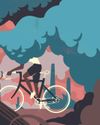
Air Apparent - Pollution hasn't gone away. It's still there in every lungful, even if we can't see it in the air or on the news. But there are reasons to breathe easier, thanks to pioneering projects using cycling 'citizen scientists'. Rob Ainsley took part in one...
The toxic effects of pollution have been known about for years. 'Just two things of which you must beware: Don't drink the water and don't breathe the air!' sang 1960s satirist Tom Lehrer.Over recent decades, though, pollution has dropped down our list of things to worry about, thanks to ominously capitalised concerns such as Climate Change, AI, Global Conflict, Species Collapse, etc. That doesn't, unfortunately, mean the problem has expired. Air quality often exceeds safe limits, with far-reaching and crippling effects on our health.
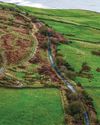
No limits
Not every adventure needs to be that epic, says bikepacking Scotland founder Markus Stitz
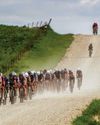
UNBOUND UNLEASHED
Josh Patterson was one of 34 starters for the inaugural edition of Unbound in 2006. Now, with more than 5,000 riders taking part in today's event, he charts the rise of the most important race in gravel
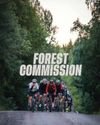
FOREST COMMISSION
Looking for a goal race in 2025 that'll stimulate the synapses and live long in the memory? You'd struggle to do better than ENID CRV in Finland
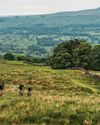
15 OF THE BEST ADVENTURES
Featuring Yorkshire, the USA, Sri Lanka and more, here are our picks of the world's greatest gravel races and routes

The stuff of dreams
Ned sings the praises of the Paris Olympics road-race course

"I rode 3,000 miles around Britain on a bamboo bike to highlight our climate crisis"
Recordbreaking cyclist and triathlete Kate Strong, 45, took to the road to raise awareness of environmental issues

FORTRESS OF SOLITUDE
We venture into the hidden gem of the glorious Creuse, one of France's least populated regions
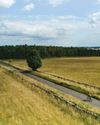
STAR TREK
New tube shapes and carbon lay-up makes the eighth generation of Trek's legendary Madone an aero and climbing bike all rolled into one

GOLD RUSH
With conflict around the world, Paris 2024 was a ray of light. Here are our highs of a mighty Olympics